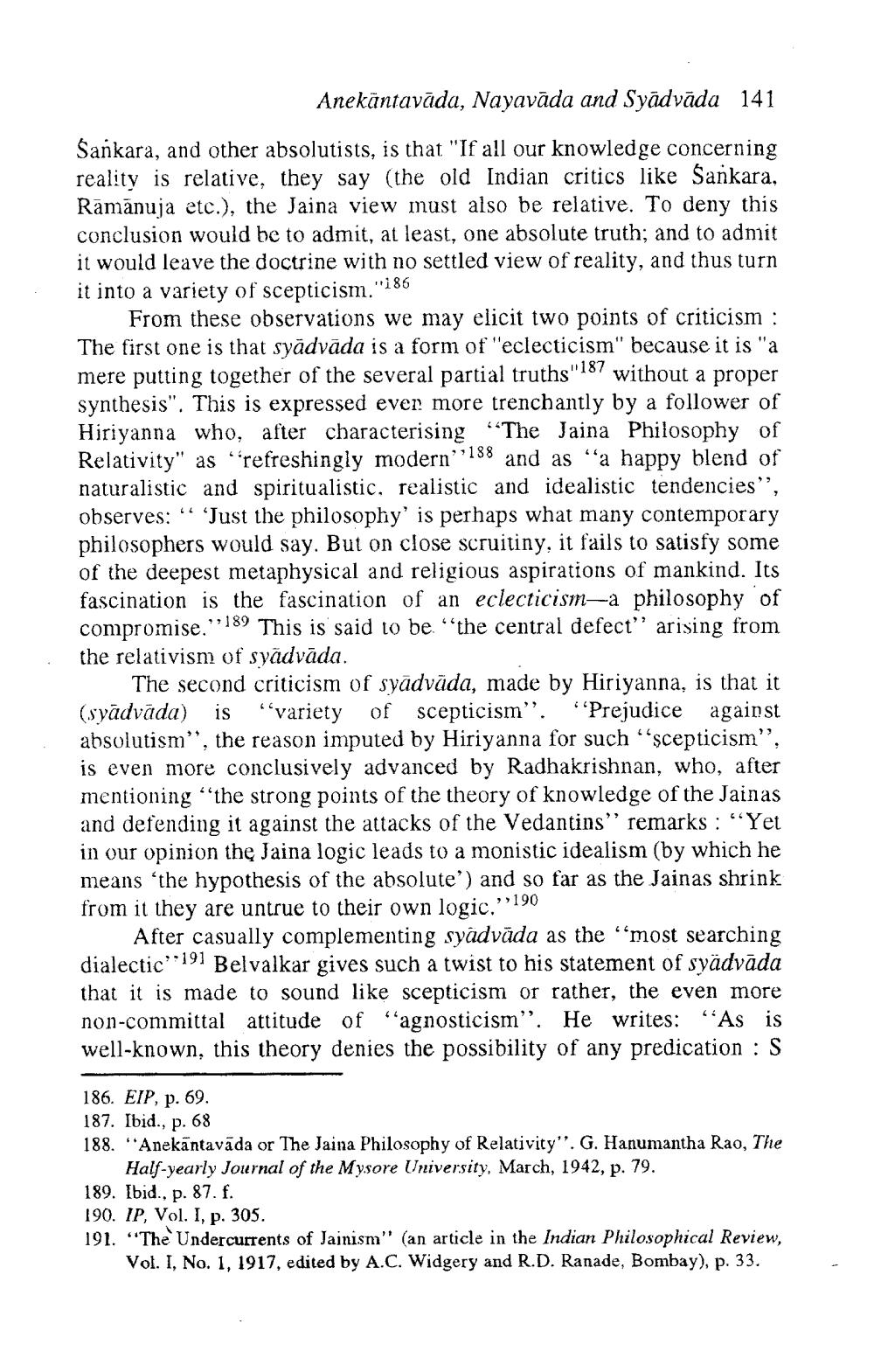________________
Anekāntavāda, Nayavāda and Syādvāda 141
Sankara, and other absolutists, is that "If all our knowledge concerning reality is relative, they say (the old Indian critics like Sankara, Ramānuja etc.), the Jaina view must also be relative. To deny this conclusion would be to admit, at least, one absolute truth; and to admit it would leave the doctrine with no settled view of reality, and thus turn it into a variety of scepticism."186
From these observations we may elicit two points of criticism : The first one is that syādvāda is a form of "eclecticism" because it is "a mere putting together of the several partial truths"187 without a proper synthesis". This is expressed ever more trenchantly by a follower of Hiriyanna who, after characterising “The Jaina Philosophy of Relativity" as "refreshingly modern’188 and as “a happy blend of naturalistic and spiritualistic, realistic and idealistic tendencies”, observes: “ 'Just the philosophy' is perhaps what many contemporary philosophers would say. But on close scruitiny, it fails to satisfy some of the deepest metaphysical and religious aspirations of mankind. Its fascination is the fascination of an eclecticism-a philosophy of compromise.''189 This is said to be the central defect" arising from the relativism of syadvāda.
The second criticism of syādvāda, made by Hiriyanna, is that it (syādvāda) is “variety of scepticism". "Prejudice against absolutism”, the reason imputed by Hiriyanna for such “scepticism", is even more conclusively advanced by Radhakrishnan, who, after mentioning the strong points of the theory of knowledge of the Jainas and defending it against the attacks of the Vedantins” remarks : “Yet in our opinion the Jaina logic leads to a monistic idealism (by which he means 'the hypothesis of the absolute') and so far as the Jainas shrink from it they are untrue to their own logic."190
After casually complementing syadvāda as the most searching dialectic":191 Belvalkar gives such a twist to his statement of syödvāda that it is made to sound like scepticism or rather, the even more non-committal attitude of “agnosticism”. He writes: “As is well-known, this theory denies the possibility of any predication : S
186. EIP, p. 69. 187. Ibid., p. 68 188. "Anekāntavāda or The Jaina Philosophy of Relativity". G. Hanumantha Rao, The
Half-yearly Journal of the Mysore University, March, 1942, p. 79. 189. Ibid., p. 87. f. 190. IP, Vol. I, p. 305. 191. "The Undercurrents of Jainism" (an article in the Indian Philosophical Review,
Vol. I, No. 1, 1917, edited by A.C. Widgery and R.D. Ranade, Bombay), p. 33.




